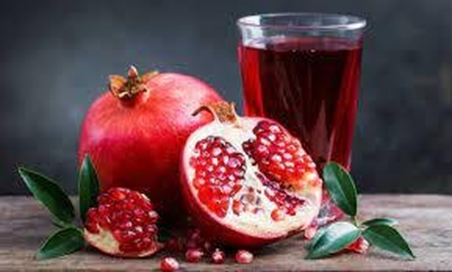Health Benefits of Pomegranates for a Strong Healthy Mind and Body
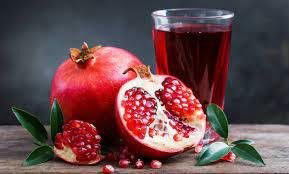
Please note our content is intended solely for informational purposes and should not be used in place of official medical advice.
Have you examine the health of heart, mind, body, soul and spirit?
How do you feel everyday when you get up from your beds? Do you have the expected healthy minds, strength, and vitality that you hoped for when you rise up from bed after a long night's rest ? Are you always tired, aching, stressed, and more? Here are many health benefits of the Most HIGH YAHAWAH's Healthcare System of Life for you. It is called nature's Herbs of YAHAWAH's Nature for the human body.
Health Benefits:
Pomegranate has anti-inflammatory properties that help in reducing inflammation. irritation in the body. Pomegranate helps to reduces body stress and prevents damage to you internal structure from head to your feet
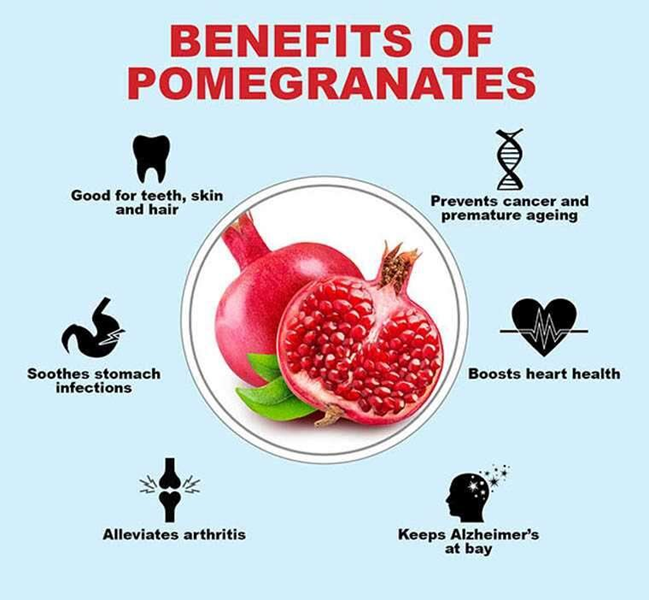
Health Benefits of Pomegranate in Winter Season: Pomegranate is considered to be very beneficial for health. It is rich in nutrients and caters to the body's nutrient needs. It not only increases the amount of blood but also provides many other benefits. Pomegranate contains large amounts of vitamin C and E which helps in increasing immunity. It is also considered to be a very good source of antioxidants and helps in weight loss. So let us tell you more about the benefits of consuming pomegranate in winters.
1. Pomegranate has anti-inflammatory property that helps in reducing inflammation and irritation in the body. It also reduces body stress and prevents damage.
2. Regular intake of a pomegranate can help you get rid of intestinal irritation. It also helps get rid of burning sensation in the stomach by strengthening the digestive system. It also helps in curing stomach ulcers and inflammation.
3. It has antioxidant properties. Pomegranate is red due to polyphenols. It is a very strong antioxidant source that reduces body inflammation and also protects cells from damage.
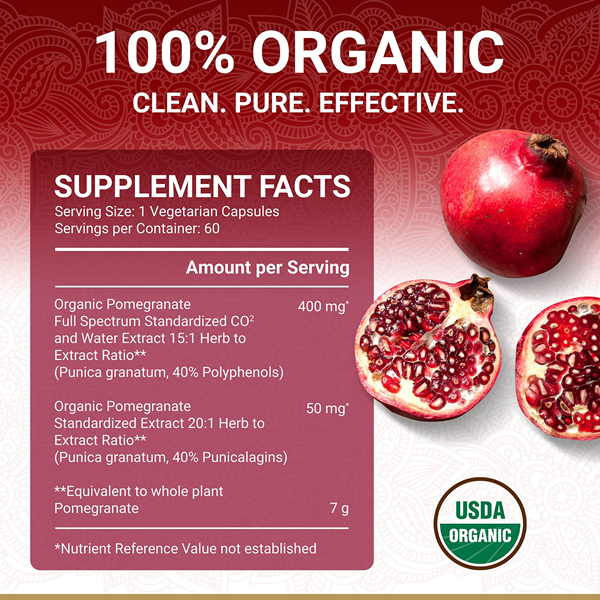
4. Pomegranate juice helps in increasing the immunity (Immunity) of the body. It contains a large amount of vitamin C. This protects us from winter diseases such as cold, cough, fever, flu, and other sicknesses.
5. Consuming pomegranate is also considered very beneficial for the heart. Consumption of pomegranate juice increases blood circulation and prevents blood vessels from becoming thick and hard. It also slows down the rate of cholesterol formation.
6. It is considered very beneficial for patients with high pressure. Regular intake of pomegranate keeps blood pressure under control. It also protects the brain from the risk of stroke.
7. Pomegranate seeds are no less than a blessing for sugar patients. Take out the seeds of the pomegranate and crush it to form powder. Take it daily with a teaspoon of warm water. It helps in increasing the speed of insulin production in the body.
8. People of all ages who have weak memory, Pomegranate helps in increasing the memory, and improve your learning memory.
Pomegranate: Is powerful fruit and high in nutrients.
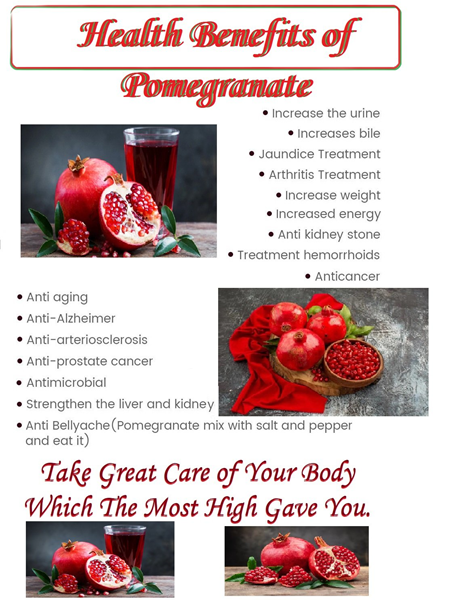
Grapefruit is a rich source of some powerful antioxidant plant compounds, which are likely responsible for many of its health benefits.
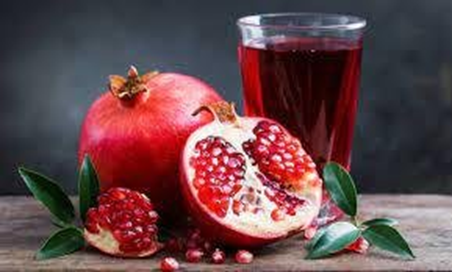
What is Pomegranate?
Pomegranates belong to the berry family, known in the scientific world as Punica granatum; it produces rounded red fruits with plum juicy edible seeds. On the other hand, I think pomegranate is a great fruit which YAHAWAH has created for maintaining the health of our bodies. The color and taste makes your brain excited and energized to take on the world and it is powerful. Pomegranate is sometimes fondly referred to as POM or POM wonderful – and if you are wondering, yea, this fruit is wonderful, INDEED.
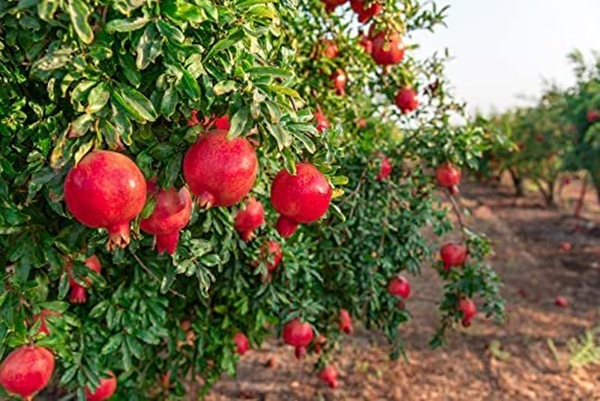
Pomegranate Is Packed with nutrients
The small pink seeds inside a pomegranate, called the arils, are the edible portion of the fruit. While they can be labor-intensive to remove from the fruit’s inner flesh, their nutritional profile and flavor are well worth the investment. Overall, pomegranates are low in calories and fat but high in fiber, vitamins, and minerals. They also contain some protein. Below is the nutrition for the arils in one average (282-gram) pomegranate fruit (1Trusted Source):
Calories: 234
Protein: 4.7 grams
Fat: 3.3 grams
Carbohydrates: 52 grams
Sugar: 38.6 grams
Fiber: 11.3 grams
Calcium: 28.2 mg, or 2% of the Daily Value (DV)
Iron: 0.85 mg, or 5% of the DV
Magnesium: 33.8 mg, or 8% of the DV
Phosphorus: 102 mg, or 8% of the DV
Potassium: 666 mg, or 13% of the DV
Vitamin C: 28.8 mg, or 32% of the DV
Folate(vitamin B9): 107 mcg, or 27% of the DV Comparatively, a 1/2-cup (87-gram) serving of arils provides 72 calories, 16 grams of carbs, 3.5 grams of fiber, 1 gram of fat, and 1.5 grams of protein. Remember that the nutritional information for pomegranate and arils differs from that of pomegranate juice, which won’t provide much fiber or vitamin C. This applies to fruit in general — eating the whole form will provide more fiber.
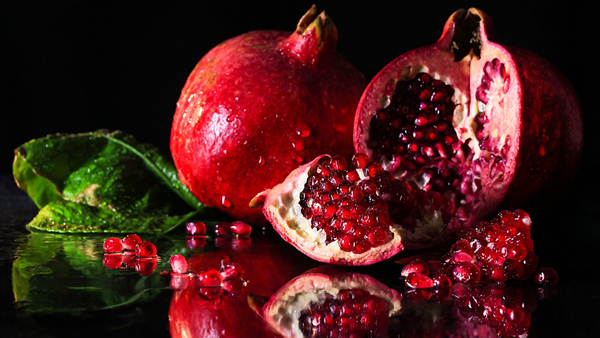
Rich in antioxidants
Antioxidants are compounds that help protect the cells of your body from damage caused by free radicals. Free radicals are always present in your body, but having too many of them can be harmful and contribute to a number of chronic diseases. Pomegranates are rich in antioxidants and polyphenolic compounds that offer protection from this damage. The main bioactive compounds with antioxidant activity that are found in pomegranates are called punicalagins, anthocyanins, and hydrolysable tannins. Getting antioxidants from vegetables and fruits such as pomegranates is a great way to support overall health and help prevent diseases.
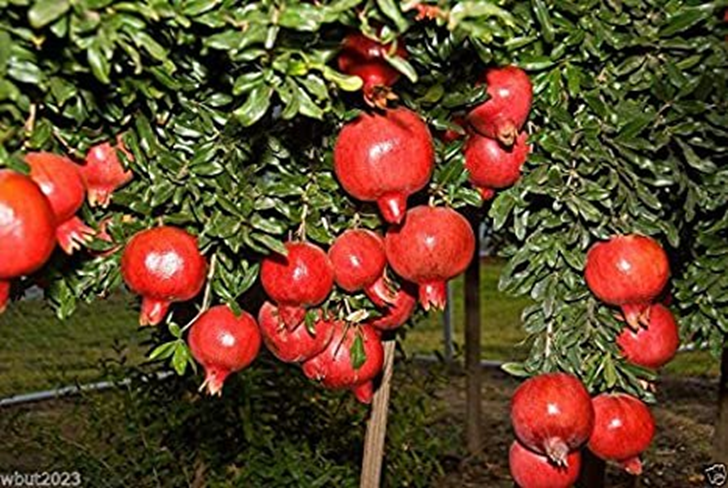
May help keep inflammation at bay
Short-term inflammation is a normal bodily response to infection and injury. However, chronic inflammation can be a problem if left untreated — and it’s common today, particularly in Westernized cultures. When inflammation isn’t addressed, it can contribute to many chronic conditions, including heart disease, type 2 diabetes, cancer, and Alzheimer’s disease. Eating pomegranates may help prevent the chronic inflammation associated with increased chronic disease risk. This is largely attributed to compounds called punicalagins, which have been shown to have antioxidant and anti-inflammatory properties in test-tube and animal studies
